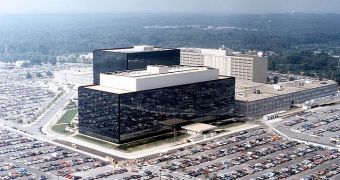The US Senate has introduced the USA Freedom Act which will be, if passed, the biggest hit to the mass surveillance efforts of the NSA and other intelligence agencies.
Senator Patrick Leahy is the one responsible for the move. He explains that this entire process is a debate about the fundamental relationship between American citizens and their government, about whether the government should have the power to create massive databases of information on its citizens.
“I believe strongly that we must impose stronger limits on government surveillance powers – and I am confident that most Vermonters, and most Americans, agree with me. We need to get this right, and we need to get it done without further delay,” Leahy said.
The project, whose actual name is Uniting and Strengthening America by Fulfilling Rights and Ensuring Effective Discipline Over Monitoring Act, will put an end to the bulk metadata collection programs which have been possible due to an interpretation of the Section 215 of the Patriot Act.
Basically, the bill will tell intelligence agencies that they actually need to have reasonable reasons to suspect an individual before targeting them with surveillance tools. Furthermore, such surveillance can’t be assigned to a mass group like it has been done until now.
The Foreign Intelligence Surveillance Court (FISC) would also be reformed. The rubberstamp court that hasn’t bothered saying “no” to the NSA in ages would now have to welcome a special advocate position who could act in court to monitor privacy rulings. Furthermore, a good part of the FISC rulings would have to be declassified.
The use of National Security Letters would also go through some transformations in the sense that they would need to be more transparent. These can be used to collect data from companies about their customers and force said companies to say nothing about it. Tech giants have recently started to report numbers in batches of 1,000.
“If enacted, this bill would represent the most significant reform of government surveillance authorities since Congress passed the USA PATRIOT Act 13 years ago,” Leahy said in a floor statement. “This is an historic opportunity, and I am grateful that the bill has the support of the administration, a wide range of privacy and civil liberties groups, and the technology industry.”
There is some fear that by the time the bill makes it out of the Senate, it’s only going to be a shallow copy of the original, so watered down that it would no longer protect the same ideals, like it happened with the other bills seeking to cut down on the NSA’s reach.

 14 DAY TRIAL //
14 DAY TRIAL //